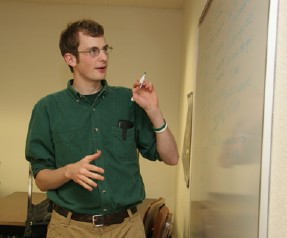At what cost? Part II
When I asked a few days ago, what the cost of the cross-party majority in the senate was, I mostly focused on what it meant for Democratic-leaning folks to trade having Bert Stedman as Finance co-chair and Lyda Green as senate president for a few committee chairmanships.
But the more I think about it, the more I think it's the Republicans who are getting the raw end of this deal. Now that Joe Thomas has joined the majority, it's basically the Democrats, plus a few Republicans, who are running the senate, not, as I had originally seen it, Republicans and a few Democrats. It's Lyda Green who's selling her soul to get the job she's always wanted and Democrats freely taking it because of the power it brings with it.
Surely the Republican party doesn't like this. Surely the left-in-the-cold Republican senators are going to say, "Wait a sec - why don't we caucus together, elect Lyda president ourselves, and keep the committee chairmanships." If Green is going to be president regardless, why not have her be elected by a Republican majority? Surely Gary Wilken can see that it's better to have Green as president and himself as Finance co-chair than it is for Green to be president and himself not to be Finance co-chair.
The sticking point here is the strength of the deal between Green and the Democrats. If made such an offer, could Green just walk away from the majority she's already constructed and return to the Republican fold?

